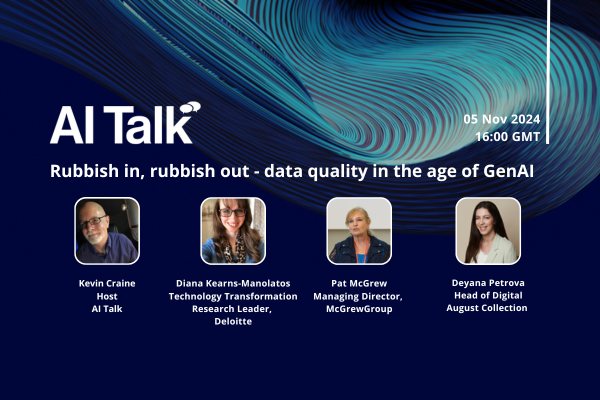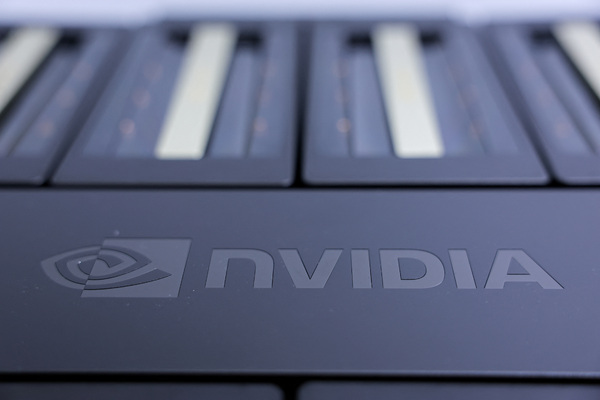Seizing the AI advantage for project management

Lysan Drabon at Project Management Institute describes how European businesses can lead the project revolution
The European business landscape is no stranger to transformation. From industrial revolutions to digital leaps, we’ve consistently adapted and innovated. Today, we stand at the cusp of another seismic shift, one driven by the unprecedented capabilities of generative artificial intelligence (GenAI).
This isn’t just another technological evolution; it’s a fundamental reshaping of how we approach, manage, and deliver successful projects. For European businesses, the message is clear: embrace GenAI now, or risk being left behind in a rapidly evolving global market.
Reimagining project management with GenAI
The buzz surrounding GenAI is impossible to ignore, and for good reason. Across Europe, we’re witnessing a surge in individual project managers integrating GenAI into their workflows. The number of project professionals using GenAI in the majority of their projects almost doubled between January and April of this year alone, as per recent research by PMI.
They’re experiencing firsthand the power of automating routine tasks, freeing up valuable time for more complex components of project management and human-centred skills such as strategic thinking and creative problem-solving. But the true potential of GenAI extends far beyond simple automation.
Imagine a future where, on top of automating reporting, summarising project meetings or analysing data, AI anticipates risks before they arise, providing teams with the foresight to adapt and avoid costly setbacks. Picture a world where managers can generate complex project plans in a fraction of the time, incorporating numerous variables and optimising for success from the outset.
This is the transformative power of GenAI – not just doing things faster, but doing them smarter, more efficiently, and with a level of insight previously unimaginable.
The impact on creativity and innovation is equally profound. A full 80% of users report that GenAI is enhancing their ability to think creatively, offering new perspectives and ideas they may not have explored otherwise. By analysing vast datasets and identifying patterns invisible to the human eye, GenAI is helping teams break free from conventional thinking and explore uncharted territories.
This fusion of human ingenuity and artificial intelligence is where true innovation flourishes, leading to groundbreaking solutions and a competitive edge in the global marketplace.
From individual action to organisational transformation
While individual adoption of GenAI is encouraging, there’s a growing disconnect between the enthusiasm of project managers and the preparedness of their organisations. It’s concerning that only 22% of project professionals feel GenAI has been effectively integrated into their companies’ strategy and operations and only 13% have received training in AI from their employer.
This gap represents a significant missed opportunity, one that could have far-reaching consequences in an increasingly competitive global landscape.
We need only look to the pioneers to see what’s possible. Forward-thinking organisations such as Accenture Argentina are already showing us the way. By embedding GenAI into their software development process, they’ve been able to anticipate potential issues and course-correct in real time. These aren’t incremental improvements so much as leaps in capability.
This early adoption is providing these organisations with a competitive advantage, and businesses that do not embrace the new technology are at risk of being left behind. And with a project failure rate of 12% in Europe, adopting AI into project management practices could help to increase project success rates.
A GenAI-powered future
The path forward is clear. European business leaders must recognise GenAI as a fundamental shift in how projects are conceived, managed, and delivered and value is created. This demands a proactive and strategic approach, one that prioritises the seamless integration of GenAI into existing systems and workflows.
This integration is about more than adopting new software; it’s about building a robust infrastructure that allows GenAI to permeate every stage of the project lifecycle.
Equally important is a commitment to upskilling and training. Equipping teams with the knowledge and skills to use GenAI tools effectively is essential. This means investing in comprehensive training programs that go beyond basic functionality and empower teams to leverage the full potential of GenAI for analysis, problem-solving, and innovation.
However, technological advancement cannot come at the expense of ethical considerations. Establishing clear guidelines and ethical frameworks for responsible GenAI use is paramount. This means addressing concerns around data privacy, bias in algorithms, and the potential displacement of human workers. By proactively addressing these challenges, European businesses can ensure that the adoption of GenAI is both innovative and responsible.
To be clear, GenAI will not displace or replace project managers. Indeed, with the global talent gap in project management set to stretch into the millions by 2030, demand for human project professionals is only going to grow. The value of GenAI lies in the empowerment, not replacement, of people.
To achieve project delivery, businesses must ensure that project managers are properly equipped and educated on how to get the most out of GenAI so that they can focus on getting the best out of themselves.
Fostering a culture that embraces experimentation, learning, and continuous improvement is crucial for harnessing the transformative power of GenAI. This means encouraging teams to explore new ways of working, to challenge conventional thinking, and to view GenAI as a powerful ally in driving innovation and achieving success.
The time for action is now
The future belongs to those who embrace change, who recognise the transformative potential of GenAI, and who are willing to invest in the necessary resources to unlock its full potential.
European businesses have a unique opportunity to lead the way in this new era of project management, driving innovation, efficiency, and success on a global scale. The time to act is now.
Lysan Drabon is Regional Managing Director for Europe at Project Management Institute (PMI)
Main image courtesy of iStockPhoto and solidcolours

Business Reporter Team
Most Viewed
Winston House, 3rd Floor, Units 306-309, 2-4 Dollis Park, London, N3 1HF
23-29 Hendon Lane, London, N3 1RT
020 8349 4363
© 2024, Lyonsdown Limited. Business Reporter® is a registered trademark of Lyonsdown Ltd. VAT registration number: 830519543





